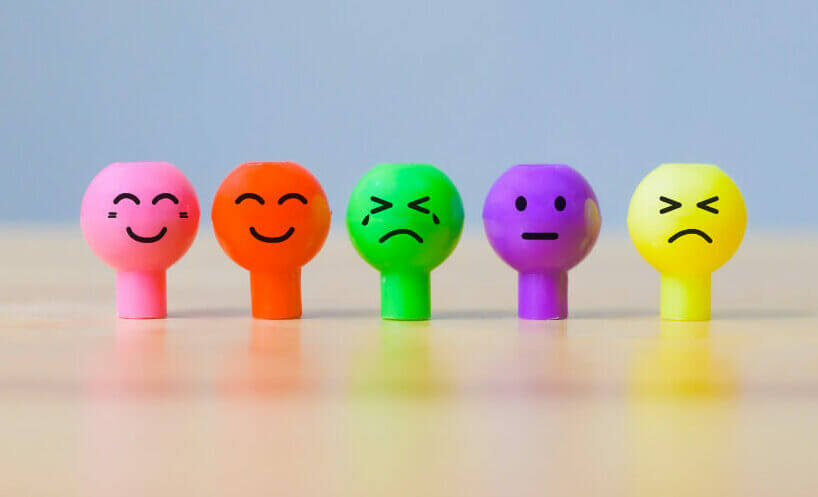
Trusting Our Emotional Triggers
Emotional triggers, aren’t they just the peskiest little things? We all have them, lurking in the corners of our minds, ready to pounce in the most unexpected moments. Triggers occur because our brains have this incredible way of holding onto memories, experiences, or events that once sparked intense emotional reactions. Say, for example, someone gets mad – oh, how we shudder at the thought! You see, for some of us (including me), back in the glorious days of childhood, anger meant something bad was about to happen.
What kind of impact do these triggers have on our lives, you ask? Quite simply, they can elicit a strong emotional response, whether it’s anxiety, sadness, or fear. Remember that we’re not here to wallow in the doom and gloom of our emotional baggage, oh no! Believe it or not, there’s a reason to trust our triggers. They can act as our own private GPS system, guiding us towards self-awareness and personal growth. By recognizing these triggers, we can better understand our reactions, embrace the tender moments of our past, and take control of our present.
So, fellow emotional adventurers, join us as we delve deep into the mysterious world of triggers; where they come from, how they impact us, and why we, in all our wisdom, should learn to trust them. Remember – we’re all just doing our best out here in this bizarre game called life. And hey, who knows? Our triggers might turn out to be our most insightful allies on this ride.
Common Emotional Triggers
Childhood Experiences
We all have memories from our childhood that have left a lasting impression on us. For some of us, these memories can cause emotional triggers. For example, if someone gets mad, it might spark a memory of trauma when anger led to someone getting hurt or abandoned. Personally, a trigger reaction I used to have was to shrink and get very quiet whenever someone (especially a partner) got angry. Basically, attempting to hide from the source of anger. A childhood experience becomes ingrained in our emotional memory, and whenever we face a similar situation, it reactivates the feelings from our past.
Psychological Factors
Our minds work in mysterious ways! Sometimes, even without us realizing it, past emotions, events, or experiences can find their way into our present lives. Our psychological makeup can turn seemingly harmless situations into triggers. This could be due to unresolved issues, repressed emotions, or even mental health conditions. When these hidden aspects of our psyche encounter a situation that is reminiscent of a past experience, it might trigger an emotional reaction in us.
Environmental Influences
Let’s face it, our environment plays a significant role in shaping our emotional triggers. The people around us, the kind of upbringing we have had, and even the daily stressors that life throws at us can contribute to our emotional responses. For example, being exposed to a stressful and chaotic work environment could make us more susceptible. The key here is to learn to recognize our surroundings and take some time for self-care.
Why should we trust our triggers? Well, the amusing thing about these triggers is that they often point us towards something that needs our attention. While it might not always be a pleasant experience, recognizing and being aware of your triggers can help you delve deeper into emotions and work on self-improvement. After all, we are all a work in progress!
Listen to my meditations on the free Insight Timer app OR YouTube 🧘
Impact of Emotional Triggers
Physical Reactions
We all have emotional triggers, and these can cause our bodies to react in peculiar ways. For instance, when we hear a sudden loud noise, our heart might feel like it’s doing a synchronized salsa dance, and our palms start sweating like a workout session in the Sahara. It’s normal for triggers to cause some physical reactions, as our bodies are simply trying to cope with the situation and keep us safe.
Mental Health Effects

On a more serious note, emotional triggers can also profoundly impact our mental well-being. Remember when you were a child, and you’d hear someone get angry? It would feel like walking on eggshells, right? Because you knew – from previous experience – that someone might get hurt or abandoned. When we get constantly exposed to these types of triggers, the repercussions on our mental health can be massive. When the stimulus makes us feel that we are constantly on high alert, it can be exhausting. This can lead to anxiety, depression and other issues.
Interpersonal Relationships
Can you imagine how challenging it could be when our triggers become everyone else’s concern, too? In the heat of the moment, we might transform into Incredible Hulk mode, leaving our partner, family members, or friends walking on eggshells around us. And that’s no fun for anyone! Triggers can create miscommunications, drive a wedge between people, and sometimes even end relationships altogether.
When you recognize your triggers and learn to manage your emotions, you can maintain healthier relationships and prevent our loved ones from feeling like they’re hanging out with Dr. Jekyll and Mr. Hyde.
Remember, dear reader, that triggers happen!. They can catch us off-guard but, with awareness and practice, we can learn to navigate them. Next time your emotions are triggered, remember: you’re not alone; we’re all in this together, dancing to the beat of our hearts.
Why Trust Emotional Triggers
Emotional triggers can be a bit pesky, but when we dig deeper into their origin, we understand that they aren’t all bad. In fact, embracing our emotional triggers can lead to some pretty amazing insights. Let’s take a journey together, exploring how our triggers can actually be a sign of personal growth, offer opportunities for self-reflection, and help us make informed decisions.
Signs of Personal Growth
When it comes to personal growth, there’s no better way than to confront our emotional triggers head-on. As we face these triggers, we learn more about ourselves and our reactions to certain situations. It’s like a treasure chest buried deep within our emotional landscape, just waiting to be discovered.
While it might be tempting to avoid these triggers or squash them down like a bug, when you confront them, you develop coping strategies and learn how to shift your emotional state. The source of your reaction isn’t blocking you, it is showing you the way forward. Now that’s a win-win situation for all of us, isn’t it?
Opportunities for Self-Reflection
Ah, self-reflection—our favorite pastime. Emotional triggers are often hidden gems that provide insight into how we got to where we are today. They serve as reminders of our past trauma and experiences, giving us the chance to connect the dots between our past and present selves.
For example, a trigger like fear could be linked to memories of a traumatic experience such as a car accident or a physical assault. By analyzing these patterns and understanding the source of our triggers, we can begin to unravel the complex tapestries that make up our lives.
So, the next time you have a trauma trigger, take a moment to pause, reflect, and consider what this situation could teach you about yourself. It’s like holding up a mirror to your soul, and that’s a powerful thing to do!
Informed Decision Making
Let’s face it, making decisions can be tough. However, knowing the source of a trigger gives us a secret weapon in our decision-making arsenal. It helps us recognize when we might be reacting out of fear or old patterns, rather than making a choice based on what’s best for us in the present moment.
When we understand that our triggers are essentially a roadmap to our emotional biases, we can begin to make decisions that are more aligned with our authentic selves. So, go ahead and thank your triggers for the valuable information they provide—it could just lead to the best decision you’ve ever made!
Together, let’s start seeing triggers as the magical, informative guides that they are. By doing so, we can grow as individuals and come out the other side as more self-aware, emotionally-balanced, decision-making machines!
Dealing with Your Own Triggers
Identify the Source
We all have our emotional triggers, and often they come from childhood experiences. As an example, let’s say the trigger is anger, as it conjures up memories of someone getting hurt or abandoned. Our body fears a repetition of the event. The first step we need to take is to identify the underlying cause of this reaction. Once we’ve unraveled our past experiences and how they continue to affect us, we’ll be in a better position to manage our reactions and emotions.
Embrace Vulnerability
Admitting that we’re vulnerable can be a daunting task, especially when it comes to our triggers. However, embracing vulnerability is essential in understanding and processing our emotions. If we allow ourselves to be vulnerable, we open the door to self-awareness and give ourselves the opportunity to heal. So let’s put our brave faces on, embrace the fact that we might be feeling exposed, and work on overcoming emotionally reacting.
Tips for Recovery
Dealing with emotional triggers, such as anger, can be tricky, but we can incorporate some strategies to help manage them. Here are a few tips to consider:
- Practice mindfulness: Staying present in the moment can help us recognize when our triggers are activated and react to them in healthier ways. I started meditating and practicing mindful journaling when I was establishing a safe environment around me. Find the tools you need that work best for you.
- Seek support: Don’t hesitate to reach out to friends, family, or even a mental health professional for a listening ear or guidance on managing triggers.
- Establish boundaries: It’s important for us to set limits and communicate our emotional triggers to others, helping to create a safe environment for ourselves.
- Utilize self-care techniques: Engaging in activities that bring us joy and relaxation can help us better self-regulate our emotional responses when triggers are present.
- Learn from the experience: Every time we successfully navigate a situation involving a trigger, we can learn and grow from it, ultimately becoming more resilient in the future.
Dealing with our emotional triggers, especially anger, can be challenging. Nevertheless, by identifying the sources, embracing vulnerability, and incorporating recovery strategies, we’ll be well-equipped to manage our survival response and enjoy more fulfilling lives. Let’s do this together!
Listen to my meditations on the free Insight Timer app OR YouTube 🧘







